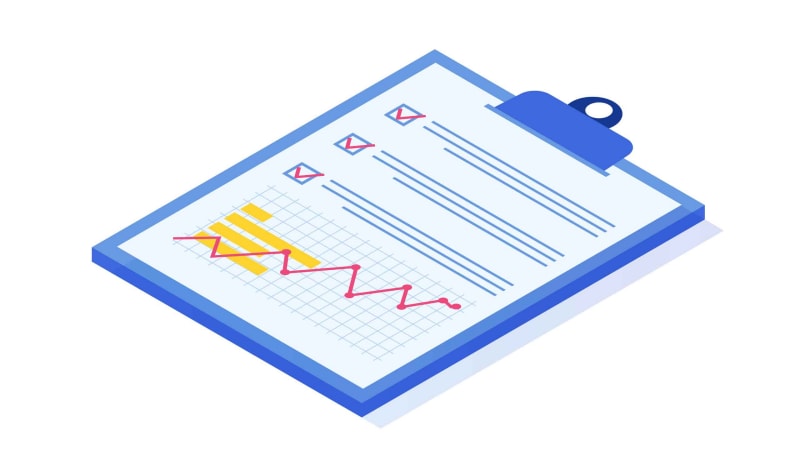How frequently should you be checking your credit reports?

Checking your credit report is a proactive way to help maintain a good credit score, so it's essential to review it on a regular basis.
You can check your Experian™ credit report and get your free credit score when you enroll in Chase Credit Journey®, an online tool that provides helpful resources on how to improve your score over time.
You can also receive a free credit report annually from the three main credit bureaus, so at the very least, you should be checking it at least once a year.
You may find that you check your credit score more often than your credit report, but both are critical pieces of information to monitor. Checking your credit report regularly — about four times a year or more — may help you keep track of your finances and make adjustments as needed.
You can check your report once a year with annualcreditreport.com or when you receive a free credit report from the bureaus, and you can check it for free with no impact to your score with Credit Journey®.
Below we’ll dive into some of the reasons why you want to check your credit report frequently.
Reasons to check your credit report
There are a few compelling reasons why you may want to check your credit report on a regular basis. If you want a simple, quick way to check your report and your credit score, you could enroll in Chase Credit Journey®. Your credit report will be provided by Experian™ and your score will be regularly updated to reflect your VantageScore® 3.0, one of the leading scoring models that is widely used by lenders.
Monitor changes to your credit score
Checking your credit report allows you to stay aware of financial changes that happen. Monitoring your credit report is a great way to notice changes that may be affecting your credit score. Doing so can help you make financial decisions, such as applying for a credit card or taking out a loan. Enrolling in Credit Journey’s credit monitoring alerts can help you keep a closer eye on your credit score.
Data breaches
Your personal information is sensitive and needs to be safeguarded. No matter what you do there are bad actors out there and it is a good idea to monitor your credit report for suspicious activity or possible exposure. If your information ends up in the wrong hands, there could be potential for fraudulent activity, which in turn could hurt your credit score.
When you monitor your credit report, you can keep an eye out for suspicious changes to your account information and take a proactive approach to fixing errors. When you opt into Credit Journey’s credit monitoring alerts and enroll in the identity monitoring features, you can receive alerts about data breaches, helping you to stay vigilant and put you in the best position to know what was compromised and take the correct actions to stop damage.
Identity theft
Information related to your identity — such as your Social Security number — can be stolen can used against you to steal funds or open accounts you didn’t authorize. This in turn can lead to derogatory remarks because you aren’t making the payments, which can negatively impact your score and remain on your credit report for up to seven years or more.
That’s why checking your credit report or enrolling in Credit Journey‘s identity monitoring services is essential for protecting your personal information. If you receive an identity monitoring alert, it’s essential that you check your credit report to review the accuracy of the information and take action on any issues that may have caused the alert.
What's included in your report?
There’s a lot of important information in your credit report that you’ll want to keep track of. This information includes, but is not limited to:
- Date of birth
- Mailing address
- Credit card accounts and balances
- Credit history
- Credit score
In summary
To keep your credit score healthy, it's important to not only embrace good credit habits like making payments on time, but also to monitor both your score and your credit report. At the very least, you should be reviewing your credit report once a year. However, reviewing your report more regularly — about four times a year (once a quarter) or more — can help you keep aware of important changes that could impact you financially. If you’re looking to actively improve your credit score, staying on top of these changes can help you pivot and put you on a path to financial wellness.



